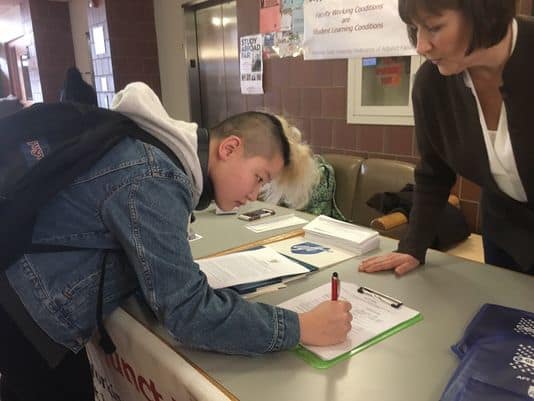The New Jersey Educator Evaluation Review Task Force on Sept. 30 submitted its report to Gov. Phil Murphy and the N.J. Legislature, as required under S2082/A3413.
“The collaborative spirit of this task force has been inspiring,” Murphy said. “Our educators play a vital role in our communities, helping to shape the next generation of American leaders. We owe them a great deal of respect and appreciation. That is why this process has been especially rewarding, because we are hearing directly from our teachers and those who represent them to ensure that our educator evaluation system works.”
One of the recurring topics is the Teacher Effectiveness and Accountability for the Children of New Jersey Act (TEACHNJ). An unintentional consequence of TEACHNJ’s implementation, the report states, is the negative effect on relationships between educators.
Within the report’s recommendations section, it says, “The tremendous amount of added stress on teachers, the pressure on administrators, and the overall unintended consequences of perceived high stakes assessments creates tension in the evaluation system. … We owe it to our educators to address the concerns with the evaluation system that is currently in place to refocus the work on student learning and educational outcomes for all learners.”
The report also addressed the educational value and administrative burden of student growth objectives (SGOs): “As currently constructed and used in practice, SGOs have limited to no educational value. … SGOs as currently implemented are a time-intensive process, and that time could and should be better invested elsewhere.”
Newark Teachers Union member Michael Iovino, an AFTNJ PreK-12 vice president, was one of the task force members.
“Overall, this committee did incredible work producing a 130-plus page document that included relevant research to support its findings,” said Iovino, who teaches at Technology High School. “The work produced is a fantastic treatise, and I expect changes to be announced as a result of it as soon as the legislative bodies begin to review the document and its recommendations.”
“AFTNJ commends the work of the New Jersey Educator Evaluation Review Task Force,” said AFTNJ President Jennifer S. Higgins. “Based on feedback received from our members over the years, we agree with the task force’s conclusion that student growth objectives have little, if any, educational value. We also applaud their recommendations on how to move forward toward innovative approaches to teacher evaluation. A collaborative effort between teachers and administrators that is not centered on compliance but on improving instruction will result in better educational outcomes for the students we serve.”


